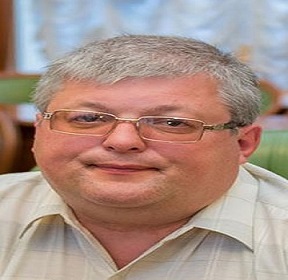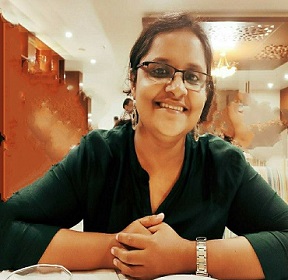Keynote Forum

Viacheslav VSushko
National University Odessa Law Academy UkraineTitle: Nation States, Gangsters and Cyber Criminals- A view of the aftermath using digital Forensics
Abstract:
criminalistic, forensic expertise, neuropsychiatry, psychopharmacology, forensic psychiatry, substance addiction, psychology of drivers, cellular neuroscience and juvenile psychiatry, psychooncology.
Biography:
Viacheslav V.Sushko was born on 13/02/1973 & he completed his PhD, National University Odessa Law Academy.Criminalistic, forensic expertise, experienced in psychiatry and education in psychiatry.

Marina Baldi
Sapienza University di Roma ItalyTitle: An Invitation. The opportunities of modern mobile forensics.
Abstract:
Ufficio o di parte in moltissime cause per accertamento o disconoscimento di paternita, ed in ambito penale, con analisi del DNA da tracce biologiche, analisi della scena del crimine e di fascicoli processuali per evidenziare piste investigative utili alla risoluzione dei casi. lattivita professionale e svolta presso il Laboratorio Genoma, azienda leader a livello internazionale per le analisi genetiche, sita in Roma, dove la Dr.ssa Baldi riceve per appuntamento.
Biography:
Graduated in biological sciences, specialist in medical genetics, forensic geneticist, master in criminology and forensic sciences. Professor of medical genetics at the nursing faculty of Tor Vergata and forensic genetics at the faculty of legal sciences, telematic university E-Campus. Lab Director of the Eurofins Genoma Group Laboratory in Rome, author of more than 100 publications in national and international journals.

Hansi Bansal
Govt. Institute of Forensic Science, Nagpur, India IndiaTitle: Incident Response of Combat Terrorism.
Abstract:
Strong research professional with a Master of Science (M.Sc.) focused in Forensic Science from Amity University, Noida. Areas of research interest are Forensic Anthropology, Fingerprints, Questioned Document Examination, Handwriting Analysis.
Biography:
Assistant Professor at Govt. Institute of Forensic Science, Nagpur. with a demonstrated history of working in the higher education industry for about seven years. Skilled in Forensic Science, Evidence Collection, DNA Extraction, and Public Speaking.
Speakers

Mihaela Aghenitei
Dunărea de Jos ” University RomaniaTitle: Electronic evidence and data protection in the European Union
Abstract:
The second additional protocol to the Cybercrime Convention on enhanced cooperation and the disclosure of electronic evidence (hereinafter referred to as the "protocol") was adopted by the Committee of Ministers of the Council of Europe on 17 November 2021 and opened for signature on 12 May 2022. The provisions of the Protocol fall within an area largely governed by common rules within the meaning of Article 3(2) of the Treaty on the Functioning of the European Union (TFEU), including instruments facilitating judicial cooperation in criminal matters and ensuring minimum standards of procedural rights, as well as data and privacy protection. The Commission has also presented legislative proposals relating to a regulation on European orders for the disclosure and preservation of electronic evidence in criminal matters and a directive establishing harmonized rules on the appointment of legal representatives for the purpose of obtaining evidence in criminal proceedings, introducing mandatory cross-border European disclosure and retention orders for electronic evidence that must be addressed directly to a representative of a service provider in another Member State. Romania, as a member state of the European Union, effectively participates in the settlement of cross-border cases, transposing the provisions of the Convention to the concrete situations of computer crime, there are problems that can be overcome, under the conditions of the restriction of the right to defense regarding interceptions from criminal files.
Biography:
Mihaela Aghenitei is a PhD Lecturer at the Faculty of Law and Administrative Sciences at the University of the “Lower Danube” and participates in a grant funded from the funds of the research project carried out by the University "Lower Danube" from Galati. She is an associate researcher at the Institute of Legal Research - Romanian Academy and a member of ELI and ESIL. She has published 81 articles indexed in national and international databases and 5 specialized books in criminal law.

Adriana-Iuliana Stancu
Dunărea de Jos university RomaniaTitle: Hacking car computers
Abstract:
The use of electronics in automobiles has led to the emergence of car hacking.
If a few years ago to make a car go more powerful than it was designed, tuning was done using classic car tools, today, the new target is the on-board computer. At first hackers would open the engine control unit (ECU) and search through the multitude of codes on a chip called an Eprom (Erasable Programmable Read-only Memory), reversing the original programming and then repeatedly resetting the car until the desired combination was reached. For the first time, scientists from Washington and California performed automatic computer hacking, through the OBD-II port, connected the on-board computer, and launched the Car Shark malware. This program can shut down the engine, lock the doors, force hot air into the cabin, and do other nasty things. The only consolation is that to connect to the OBD-II port, you need to get inside the car, and once the attacker is inside, it is easier for him to steal a car than to engage in hacking. Scientists at Rutgers University and the University of South Carolina were the opposite. According to them, the car can be hacked remotely and even now of its movement. They do this through tire pressure sensors. These sensors use radio frequencies to transmit information. With the help of this signal, scientists were able to track the vehicles and interfere with the transmitted information.
Biography:
Dr. Adriana-Iuliana STANCU Lecturer PhD ”Dunărea de Jos ” University Galati Romania
Director of the Legal Science Department, Faculty of Law, and Administrative Sciences

Ceobanu andrei
USV la Universitatea RomaniaTitle: A new chemical method for revealing latent fingerprints in the mass of wooden objects
Abstract:
Fingerprints are used since the 19th century by Police forces to identify criminals and murderers. In the 20th century, the evolution of science contributed to developing forensic methods for revealing latent fingerprints. One of the most used chemical methods for revealing latent fingerprints on documents and paper objects is Ninhydrin. This substance shows great results but is affecting the characteristics of ink or other scriptural substances.
In the 21st century, scientists developed a new method in this field using a new substance named Indandione, which is used by forensic scientists more than Ninhydrin. Forensic literature has not documented the results of Indanedione or Ninhydrin applied on wooden surfaces. Using these two substances consecutively on wooden surfaces with no varnish film, forensic scientists achieve surprising results. On this kind of surface, Indanedione and Ninhydrin act the same as on the paper but the time frame of applying and revealing fingerprints is longer, about one week, by applying it daily.
Indanedione and Ninhydrin on wooden surfaces were not documented by forensic scientists because developed countries register a small rate of murders using wooden tools. In Eastern Europe, the majority of murders happen in countryside communities where the level of education is commonly low and people are using these kinds of objects to commit crimes (axes, pitchforks, etc.).
By this method, I achieved the identification of a murderer and I believe it can be successfully developed and applied in forensics.
Biography:
Andrei Ceobanu is a Police Commissioner at Suceava Police Inspectorate, Head Chief of Forensic Bureau, Romanian Police Forces. He is Associate Assistant at Stefan cel Mare University Suceava, Faculty of Law, Romania. Andrei Ceobanu graduated Faculty of Law and Romanian Police Academy, Bucharest, in 2010. Ever since he works as a forensic specialist, crime scene investigator, and fingerprints specialist. He developed a local forensic laboratory and manages the activity since 2017. In 2020 started teaching forensic classes as an Associate Assistant at the Faculty of Law at Stefan cel Mare University, Suceava, Romania.

